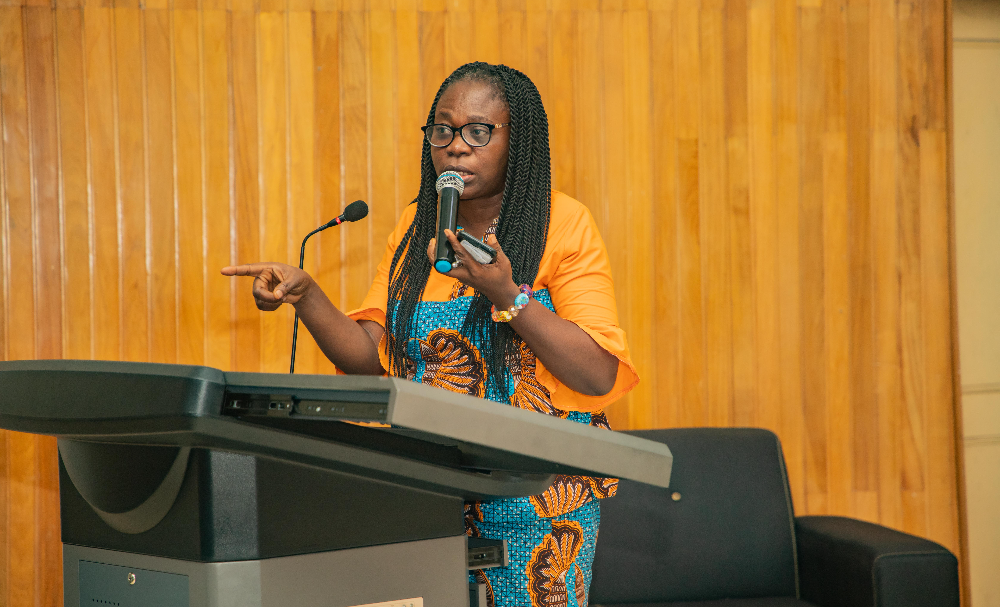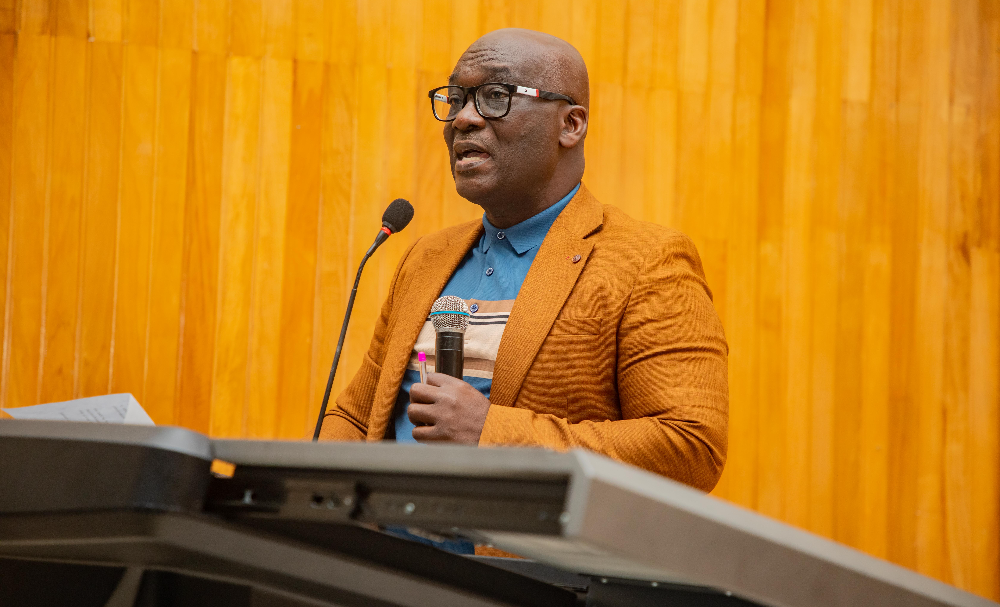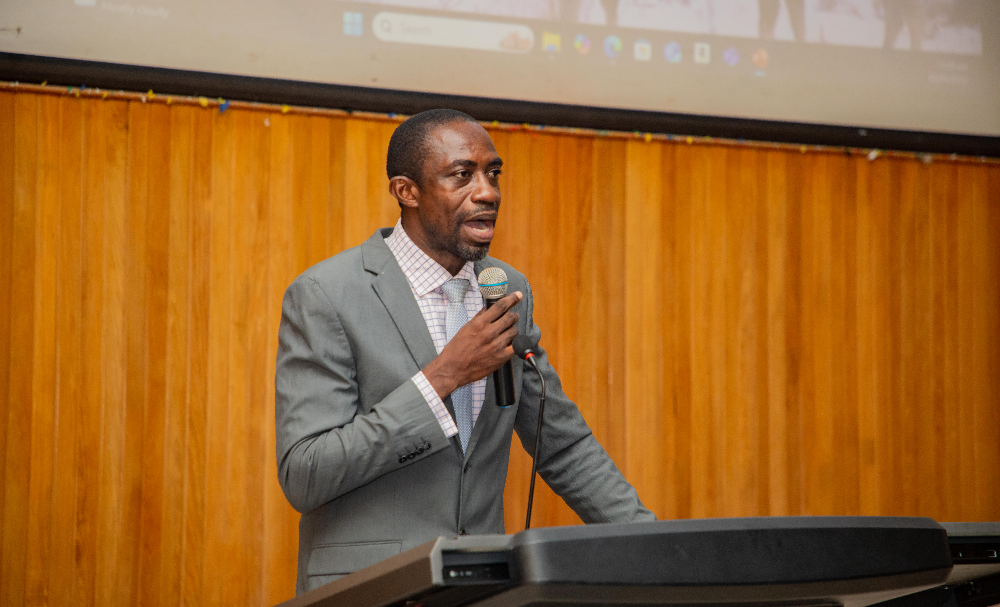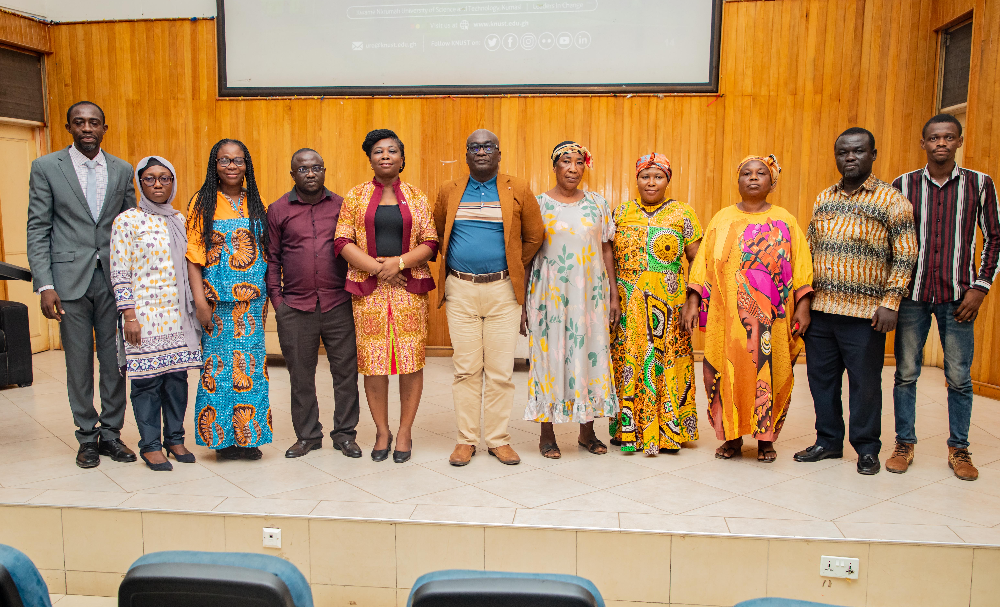The Department of Food Science and Technology at the Kwame Nkrumah University of Science and Technology (KNUST), Kumasi, has held its Food Safety Stakeholders’ Forum, an initiative aimed at reducing contamination along the vegetable supply chain.
The event brought together farmers, traders, regulators, health advocacy institutions, and certification agencies to discuss practical solutions for safeguarding vegetables before consumption.

The Head of Department, Professor (Mrs.) Faustina Wireko-Manu, emphasized the importance of the forum:
“Ghana is lagging in terms of monitoring and enforcing by-laws to ensure the production of safe food. It is in this light that the Department of Food Science and Technology has taken this pragmatic step to organize this all-important stakeholder forum. We aim to present our preliminary findings on contamination in the vegetable supply chain for discussion and prevention.”
She also reiterated the role of research in preventing vegetable contamination:
“We are leaders in change, and so we need to find solutions. KNUST, as an institution, must examine our water sources for farming and liaise with regulatory bodies. At the very least, we should set the pace on campus for others to follow.”
“We must also conduct research and develop simple solutions by applying technologies that extend vegetable shelf life while maintaining high quality. There are many solutions available, and as students, you should focus on practical approaches in your projects. We should create easy methods for storing produce and managing water resources to benefit society.”

Professor William Ofosu, Chairperson of the forum, highlighted the importance of knowledge in vegetable cultivation to mitigate associated risks:
“The prevailing notion that vegetables are inherently safer than meat warrants critical examination. The significant contamination risks in vegetable cultivation demand a nuanced understanding. Addressing these issues is essential not only to dispel misconceptions but also to mitigate risks proactively.”
He explained that while vegetables represent just one segment of the food supply, focusing on them helps address broader systemic challenges.
Professor Ofosu also proposed designating June as an annual period for food safety forums, aligning with global food safety awareness campaigns.
“This strategic timing would amplify our visibility and reinforce our commitment to this essential cause,” he stated.

Dr. Eric Owusu Mensah, a lecturer at the Department of Food Science and Technology, acknowledged the strong advocacy for consuming fresh leafy vegetables but expressed concerns about their safety.
“This calls for immediate action and pragmatic steps to safeguard lives, now and in the future because our learning outcomes emphasize applying skills to prevent and control foodborne diseases,” he stated.
Prior to the forum, students were grouped and tasked with selecting vegetable farms within KNUST and nearby markets for investigation. They presented preliminary findings on key areas such as food safety laws, stakeholder roles, pesticide use and handling, marketing, and postharvest management.
Traders present at the event advocated for mass education through traditional media outlets, urging farmers, traders, processors, and distributors to prioritize food safety.

















